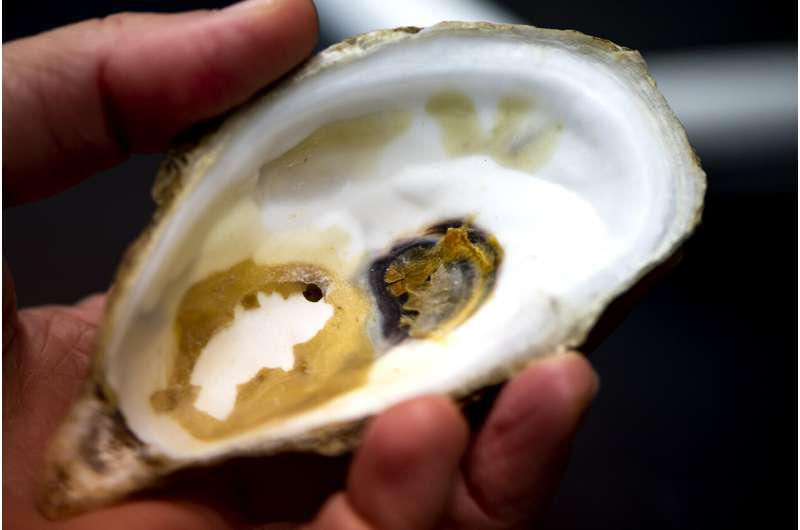Could AI help imperiled marine species survive climate change?

Earth’s oceans are warming and becoming more acidic as the climate changes. For much of the flora and fauna of the sea, that could mean extinction, unless species can adapt to new conditions and food sources—or migrate to more hospitable waters.
But imperiled species might be able to get a helping hand from humans, says Katie Lotterhos, associate professor of marine and environmental sciences at Northeastern, as long as scientists can accurately determine which species will need an assist.
That’s where Lotterhos and her colleagues come in.
Within species there is often genetic variation. Some genetic strains will be more readily able to adapt to certain new conditions than others. If researchers can identify which genetic strains of a given species are more likely to survive in the expected new conditions, they can focus restoration and protection efforts on those strains. Or, Lotterhos says, scientists could help species adapt to climate change by moving them to places that are likely to be more hospitable down the road in a concept called “assisted migration.” Scientists and industry leaders are already considering this approach for agriculture and trees.
“There is an urgent societal need to better match genetic strains with environments for restoration efforts in the face of climate change,” Lotterhos says. To do that, scientists have been developing methods for “genomic forecasting,” she says, which can use genetic data to “predict how a genetic strain will perform in different environments.”
But right now, scientists aren’t quite sure if those predictions are accurate. So Lotterhos and colleagues put a leading machine-learning algorithm to the test. Their results are reported in a recent paper published in the journal Evolutionary Applications.
The machine-learning algorithm combines genetic and environmental information to predict how poorly adapted a given genetic strain of a species would be to a certain set of environmental conditions in a measure called “genomic offset,” Lotterhos says. To test how accurately the algorithm predicts genomic offset, she explains, the team created computer simulations of what they call “virtual species” that don’t exist in the real world but undergo birth, death, dispersal, evolutionary selection, and mutation in the same ways that real species do in nature.
“Our study shows that genomic forecasting methods hold promise, but that we still don’t have a full understanding of their strengths and limitations,” Lotterhos says. The machine-learning method proved better than other measures to predict genomic offset when the researchers kept the inputs simple, considering just genetic information or just environmental information. But taken together as a way to predict population declines due to environmental change, Lotterhos says the results could be misleading.
To test the machine-learning approach further, Lotterhos’s team is developing more simulations. The scientists will also take this experiment offline and conduct field experiments.
Lotterhos recently received two prestigious awards: A CAREER award from the National Science Foundation, and a Fulbright scholarship. With support from the CAREER award, Lotterhos and colleagues are conducting tests of the genomic forecasting methods in oysters. The Fulbright scholarship has taken her to Sweden, where she is testing the methods in sea life there such as marine snails, eelgrass, and isopods, an order of crustacean that includes woodlice.
“The Baltic Sea is an interesting study system because many species have genetically adapted to a steep environmental gradient from benign ocean conditions to a more acidic freshwater environment,” Lotterhos says. “The goal is to determine how well these methods work, and under what conditions they perform well.”
Ocean surface climates may disappear by 2100: study
Áki Jarl Láruson et al, Seeing the forest for the trees: Assessing genetic offset predictions from gradient forest, Evolutionary Applications (2022). DOI: 10.1111/eva.13354
Citation:
Could AI help imperiled marine species survive climate change? (2022, April 20)
retrieved 20 April 2022
from https://phys.org/news/2022-04-ai-imperiled-marine-species-survive.html
This document is subject to copyright. Apart from any fair dealing for the purpose of private study or research, no
part may be reproduced without the written permission. The content is provided for information purposes only.
For all the latest Science News Click Here
For the latest news and updates, follow us on Google News.

